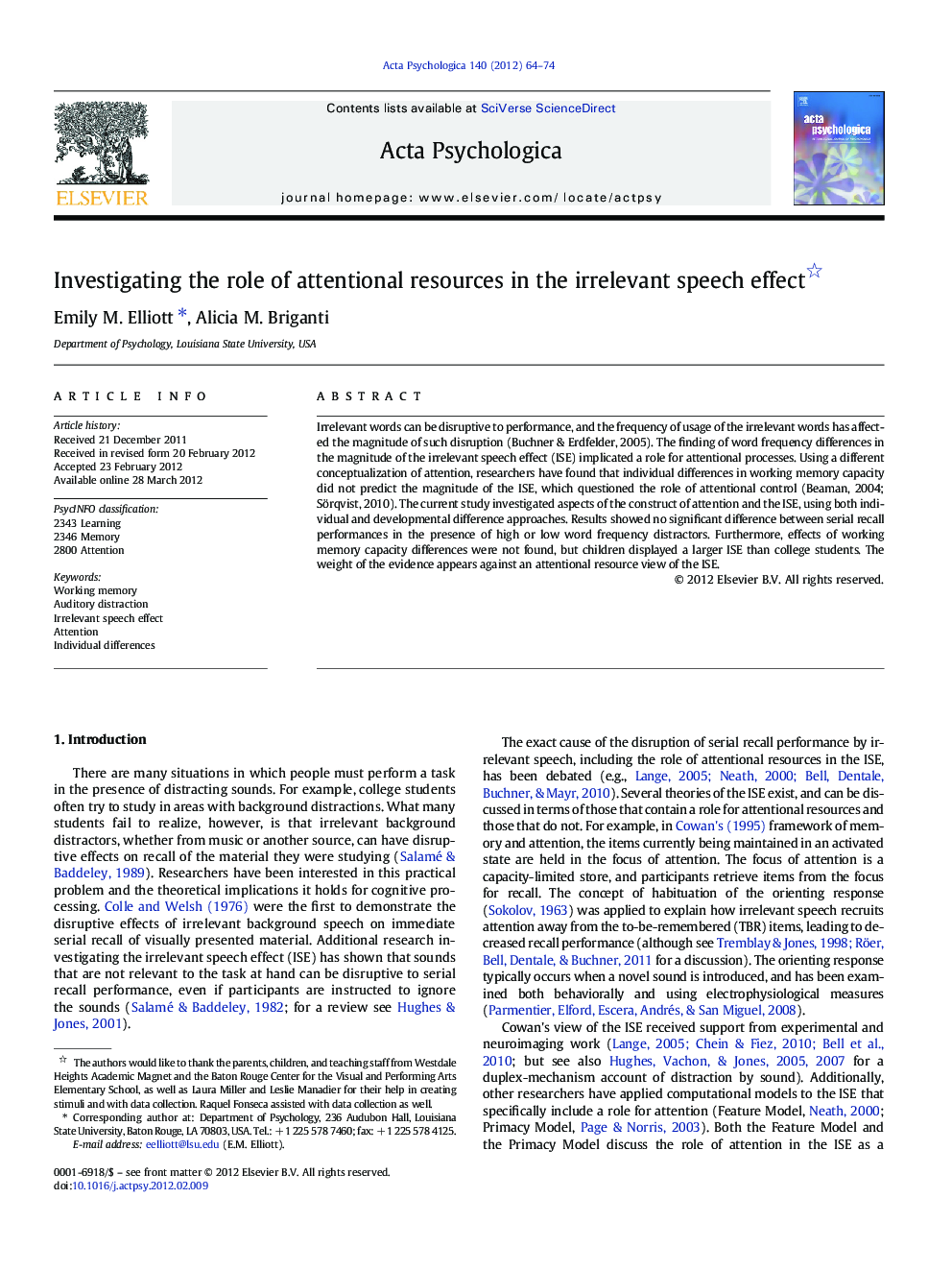| Article ID | Journal | Published Year | Pages | File Type |
|---|---|---|---|---|
| 919974 | Acta Psychologica | 2012 | 11 Pages |
Irrelevant words can be disruptive to performance, and the frequency of usage of the irrelevant words has affected the magnitude of such disruption (Buchner & Erdfelder, 2005). The finding of word frequency differences in the magnitude of the irrelevant speech effect (ISE) implicated a role for attentional processes. Using a different conceptualization of attention, researchers have found that individual differences in working memory capacity did not predict the magnitude of the ISE, which questioned the role of attentional control (Beaman, 2004; Sörqvist, 2010). The current study investigated aspects of the construct of attention and the ISE, using both individual and developmental difference approaches. Results showed no significant difference between serial recall performances in the presence of high or low word frequency distractors. Furthermore, effects of working memory capacity differences were not found, but children displayed a larger ISE than college students. The weight of the evidence appears against an attentional resource view of the ISE.
► We examined attentional resources in the irrelevant speech effect. ► We examined individual and developmental differences in performance. ► High and low word frequency distractors were compared. ► No differences were found between high and low word frequency distractors. ► These findings support structural views of working memory.
